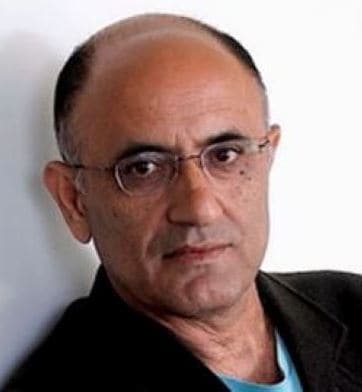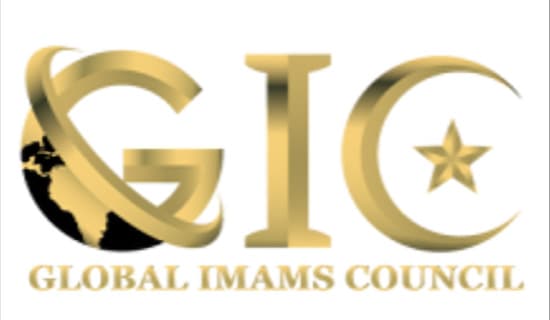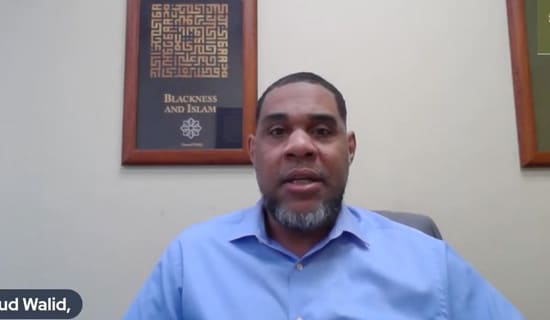In an article in the London-based Saudi daily Al-Hayat, Dr. Salman Masalha, a Druze Israeli-Arab intellectual, discussed an Israeli bill seeking to ban the use of loudspeakers by houses of worship, which would prevent mosques from using them to broadcast the call of the muezzin (i.e., the call for prayer). In contrast to the prevailing response to this bill in the Arab and Muslim world, that this is a declaration of war against Islam, Masalha noted that the mosque loudspeakers disturb many people, both Jews and Arabs. Moreover, he said, even in Arab countries there have been calls to ban the use of loudspeakers, and fatwas have been issued justifying such a ban. He called not to consider the bill from the populist perspective of the Arab-Israeli conflict, but to consider it objectively from the perspective of the public good.
The following are excerpts from the article:[1]
Dr. Salman Masalha (image: Ahewar.org)
"Since the situation that exists between the Jews and the Arabs, between Israel and Palestine, is unnatural, any demand by one side [automatically] causes much doubt and apprehension in the other. This has been evident recently following efforts by the Israeli government to promote a bill that limits the volume of the loudspeakers of mosques on the grounds that they disturb people living nearby. Since the character of this Israeli government - with its right-wing coalition and the racist behavior [it has exhibited] in many cases - is clear and known to all, this bill... has caused apprehension in the other side, namely the Muslim residents. Many of them say it is a racist bill, but none of them undertake to consider it from an objective perspective and to examine the [impact] of the loudspeakers not only on the Jewish sector but especially on Arab cities and villages.
"Arab cities and villages in Israel suffer from the phenomenon of loudspeakers, not only those of the mosques but also the loudspeakers that incessantly broadcast loud commercials, from those [used by] grocers to [those used by] shoe and clog sellers. The truth is that we do not know what cultural tradition these annoying people, who fill their surroundings with a deafening racket night and day, are relying on. In doing so they harm the sick and the elderly, as well as children and other people, who have a need for peace and quiet in their homes and their neighborhoods.
SUPPORT OUR WORK

"Against the background of the Israel-Palestinian conflict, it is very easy to label as racist every action of the Israeli rival, which is represented by this hated government. However, the issue of noise in public spaces and the prevention of noise pollution has nothing to do with the struggle over this land. The mosque loudspeakers and the [noise] they make is an issue that all Arab societies struggle with, including those in Arab countries far away from Israel and Palestine and the conflict there.
"As evidence for my claims, let me present several statements about this issue from Arab countries, whose residents are no doubt loyal to Islam and its heritage. In fact, this problematic issue has been addressed by many religious scholars. In the 1970s, renowned [Muslim] preacher Muhammad Metwali Al-Sha'rawi declared: 'If it were up to me, I would ban mosques from using loudspeakers to announce the dawn prayer.' The reason for this is obvious: these early morning hours are the quietest hours, when people are sound asleep and have not yet woken up to go to work and make a living...
"People in the Arab world suffer greatly from this worrying phenomenon and are seeking a solution to it, and Muslim clerics are likewise working to resolve it. That is why there are debates about it and fatwas issued about it. [The website] Islamweb.net has posted fatwas by [Saudi Arabia'] Standing Committee [for Scholarly Research and Issuing Fatwas] stating that 'it is forbidden to use radios and similar devices to broadcast Koran [verses] at high volume in the mosque on Friday before the arrival of the imam,' and it is likewise forbidden 'to use loudspeakers that disturb people, especially sick people and their families.' [The fatwas state further that] loudspeakers and microphones 'must be used only inside the mosque so as not to disturb people outside. [Moreover,] if the imam's voice is loud enough for worshipers to hear him, there is no reason to use loudspeakers [at all]'...
"We see, then, that this issue is a matter of controversy in the Arab and Muslim world [itself], owing to the problems it creates, which have begun harming people's [quality of] life in this [modern] age. So when the Arab Knesset members of the Joint List address this matter, they should avoid chanting populist slogans in favor of the loudspeakers and consider the issue separately from the sensitivities of the struggle over this homeland. The call to maintain [quiet in public] places is in the interest of all residents, regardless of political affiliation and political controversies. It is no coincidence that, in opposing the bill, the populist Arab Knesset members gained the support of the ultra-religious Orthodox Jewish parties, since they too worry that limitations will be placed [on the Jews' right to perform] Jewish rituals that disturb [the public]. However, as I said earlier, since the national situation in our region isn't normal, everyone is inclined towards populism, even in matters where there should have been a consensus for the good of the public. However, let us stress that the optimal position on these matters should seek to end [all] disturbances, regardless of their source and the affiliation of the people responsible for them, be they Jewish, Muslim, Christian or members of any other group..."
Endnotes:
[1] Al-Hayat (London), November 19, 2016.





